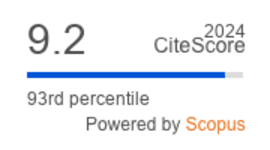Therapeutic and Pharmacological Role of Natural Products in Neurological Diseases: Targeting Autophagy Pathways
DOI:
https://doi.org/10.36877/pmmb.a0000463Abstract
The mounting interest in botanical-derived natural products for neuroprotection gains significant attention for their prevalence, diverse array of bioactive constituents, and roles in traditional and modern medicine. While numerous address neuroprotective mechanisms of botanical products, few focus specifically on their autophagy effects. This review conducted a systematic analysis following the Preferred Reporting Items for Systematic Reviews and Meta-Analyses (PRISMA) guidelines. Relevant studies were extracted from the Google Scholar, Scopus, and PubMed databases up to February 28, 2024. Inclusion criteria targeted original English studies examining neuroprotective effects of botanicals associated with autophagy pathways in human clinical studies, in vitro models, and in vivo models. A total of 104 studies were included, comprising 32 cell-based studies, 52 animal-based studies, and 20 studies that employed both in vitro and in vivo models. These studies were categorized by botanical families and species, focusing on their neuroprotective activities and specific neurological diseases, including Alzheimer’s disease, Parkinson’s disease, and stroke. Results show that families such as Fabaceae and Apiaceae were frequently investigated for their autophagy-modulating neuroprotective potential. Notable botanical species, including Panax ginseng, Glycyrrhiza uralensis, Polygala tenuifolia, Angelica sinensis, and Paeonia lactiflora, have demonstrated promising neuroprotective effects by regulating autophagy processes, including initiation, elongation, maturation, and selective degradation, across neurological disease models. The review emphasizes the necessity for further investigation into the specific mechanisms by which these botanicals modulate autophagy and their therapeutic applications in neurological diseases. This comprehensive analysis establishes a foundation for future studies developing effective botanical-based interventions targeting autophagy pathways in neurodegenerative diseases.
Downloads
Additional Files
Published
How to Cite
Issue
Section
License
Copyright (c) 2025 Chi Fung Leong, Long Chiau Ming, Mohamed Kheireddine Aroua, Lai Ti Gew

This work is licensed under a Creative Commons Attribution-NonCommercial 4.0 International License.
Author(s) shall retain the copyright of their work and grant the Journal/Publisher right for the first publication with the work simultaneously licensed under:
Creative Commons Attribution-NonCommercial 4.0 International (CC BY-NC 4.0). This license allows for the copying, distribution and transmission of the work, provided the correct attribution of the original creator is stated. Adaptation and remixing are also permitted.

This broad license intends to facilitate free access to, as well as the unrestricted reuse of, original works of all types for non-commercial purposes.
The author(s) permits HH Publisher to publish this article that has not been submitted elsewhere.



.png)

.jpg)
